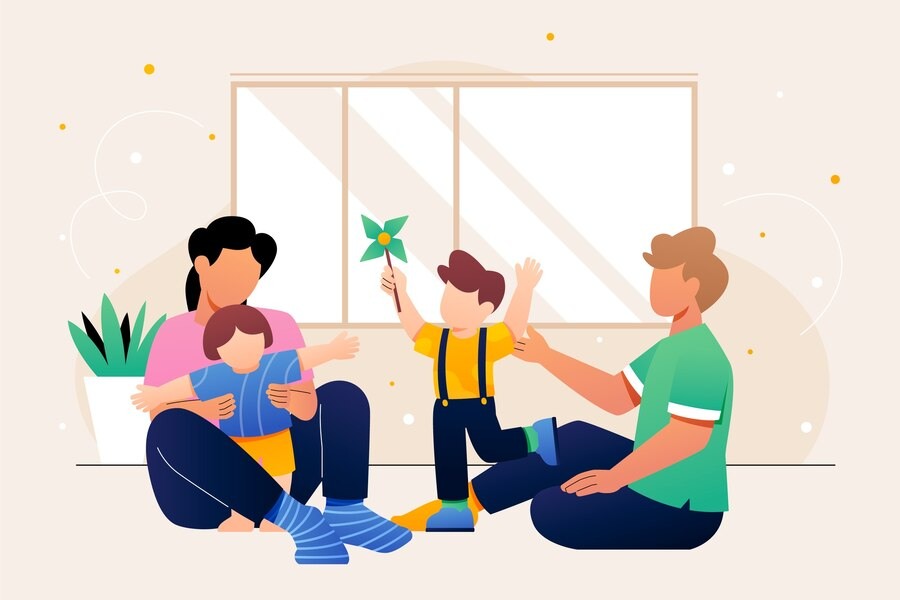Foster children entering a new home environment often struggle with feelings of loss after being separated from their biological families. Maintaining connections with parents, siblings, grandparents, and other relatives provides comfort, a sense of identity, and crucial emotional support during a challenging transition. With some thoughtful effort, foster carers can help facilitate ongoing contact that benefits the child.
Encourage Open Communication
Create an environment where the foster child feels comfortable mentioning or asking about their biological family. Don’t avoid conversations about parents or siblings. Let the child know you care about what’s important to them. Ask open-ended questions and listen without judgment. Share details about your own extended family to model healthy family dynamics. Make it clear the child can share stories, ask questions, or talk about their family anytime.
Coordinate Visits
Scheduled visits are vital for foster children to maintain face-to-face relationships with parents, siblings living apart, and other family members. These will usually be arranged through your agency, such as Fosterplus Edinburgh. Be flexible to accommodate the family’s availability. You may have to drive the child to visit relatives if needed. The consistency of regular visits means a lot to kids and family members and can also support those relationships where children plan to return home.
Share Photos
Collect family photos from the child’s social worker and let the child display them. Take pictures when the child reunites with family and provide copies. If appropriate and the child’s social worker agrees, create a shared online photo album to swap new pictures easily. Print photos the child takes with your family to give as gifts during visits. Scrapbooking and making photo books also help reinforce the child’s history and connections.
Facilitate Communication
Depending on the situation, help set up phone and video calls between the foster child and relatives. Encourage email, texting, writing letters, or sending postcards if appropriate. Provide stamps and child-friendly stationery. Assist younger kids with writing letters and reading messages from their biological family if needed. Display messages on the refrigerator or pin-up cards and letters in the child’s room. Let them connect via social media if suitable.
Celebrate Important Events
Involve biological relatives in celebrating the foster child’s birthday, holidays, school events, and milestones. Send invitations to parents, grandparents, and siblings with whom the child remains in contact. Have them participate in parties, plays, sports games, and award ceremonies. Ask them to provide family photos or other memorabilia to display. Keep biological relatives updated on the child’s life through calls, texts, and emails. The child’s social worker will be able to advise you on ways you can involve a child’s relatives.
Welcome Family Members
If suitable, create opportunities for the foster child to spend time with the biological family in your home. Invite parents, siblings, and grandparents over for dinners, holidays, and other special occasions. When appropriate, encourage overnights, weekend visits, or attending family weddings and reunions together. Integrate relatives into fun activities like game nights, baking cookies, barbecues, camping trips, or bowling. Make them feel included, and always check with your social worker before making any arrangements.
Show Respect
While challenges may exist, avoid criticizing the biological family in front of the foster child. Don’t make negative assumptions. Be open-minded; let the child share their feelings. Follow child welfare recommendations, but don’t cut off or hinder contact that could emotionally damage the child. Focus on facilitating healthy ongoing relationships that provide stability while the child is in foster care.
Final Thoughts
Maintaining close bonds with their biological family provides huge emotional benefits for foster children. With understanding and effort, foster parents can coordinate visits, communication, and involvement that help kids feel loved, supported, and connected to their roots. Simple, consistent gestures reinforce to foster kids that they always have a place with their biological family.
Additionally, welcoming family members into your home and showing respect for the child’s biological ties can significantly affect the child’s emotional stability and overall development. While challenges may arise, the effort to maintain these relationships is invaluable. It’s about supporting the child’s current well-being and contributing to their long-term emotional health and sense of identity.

